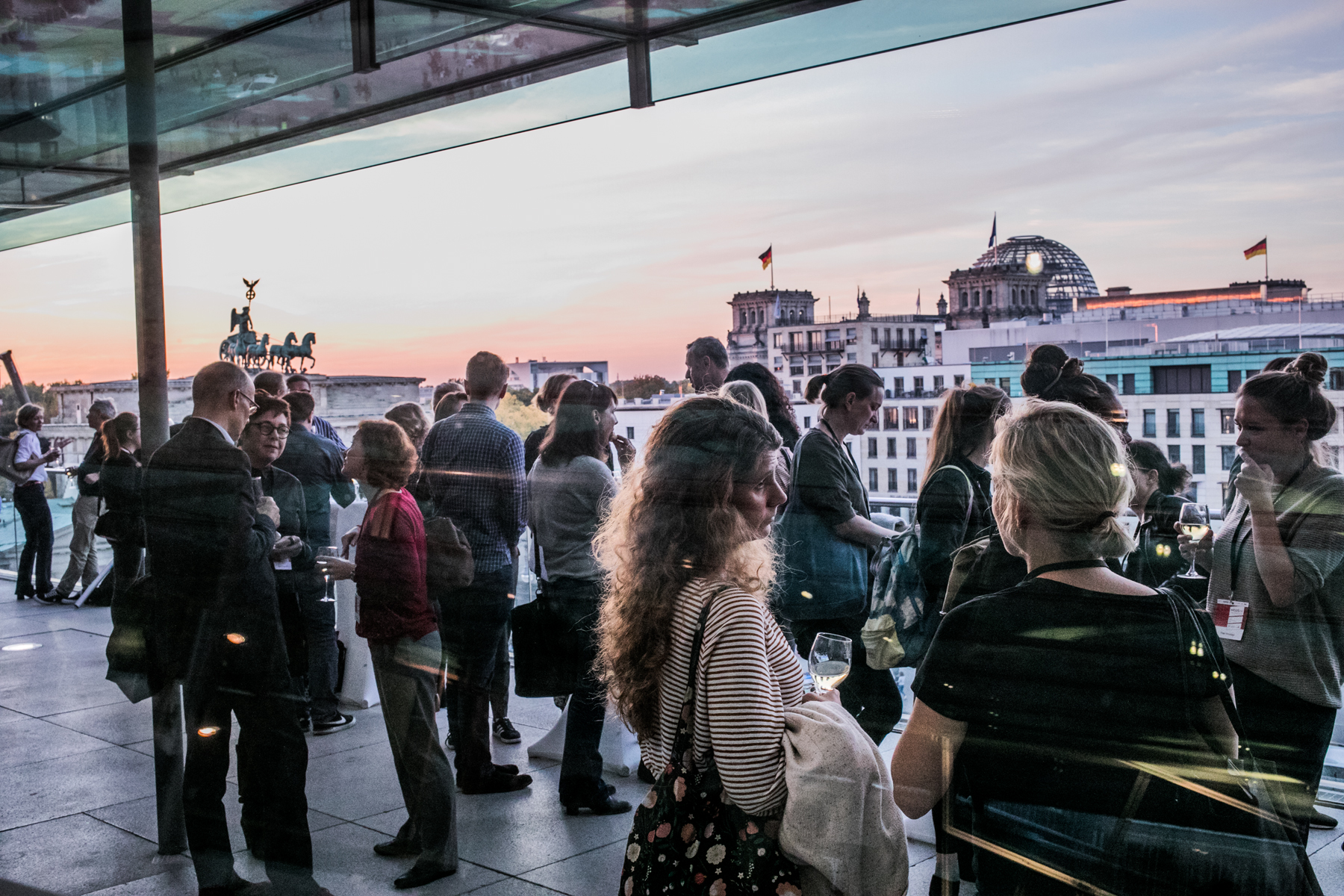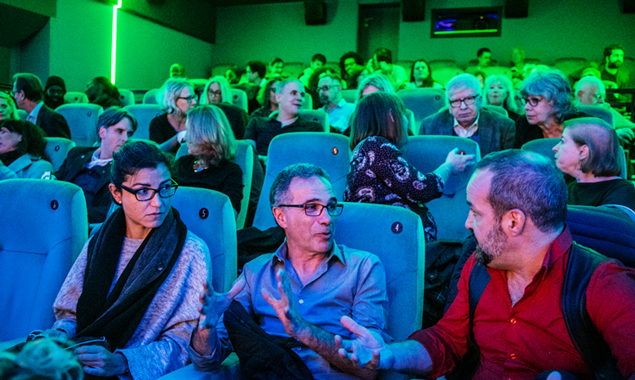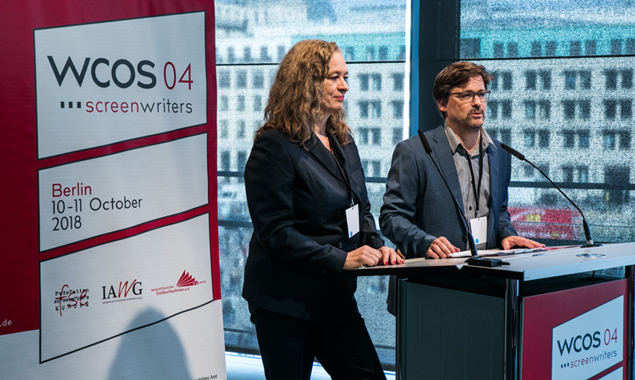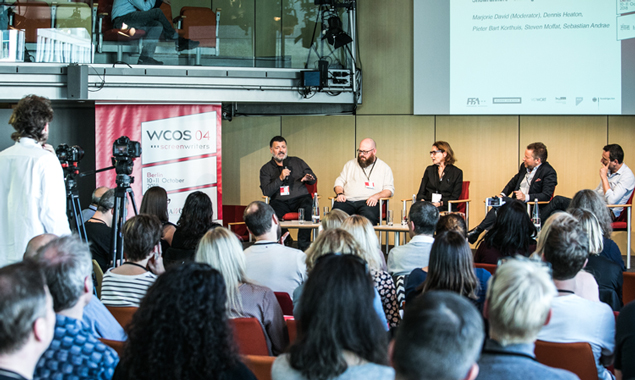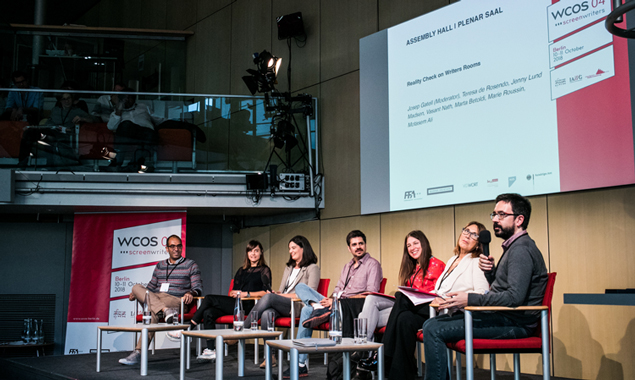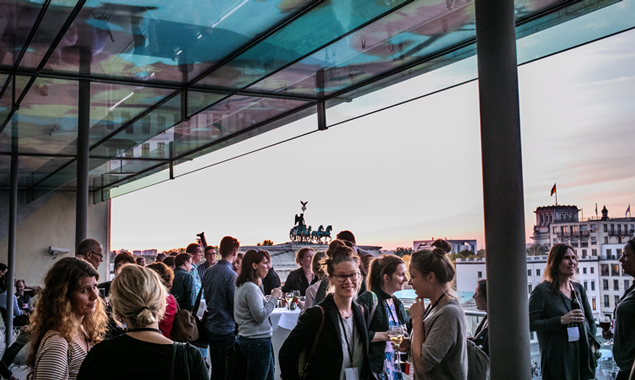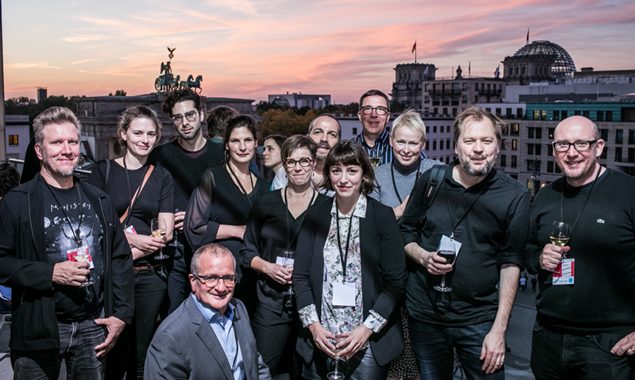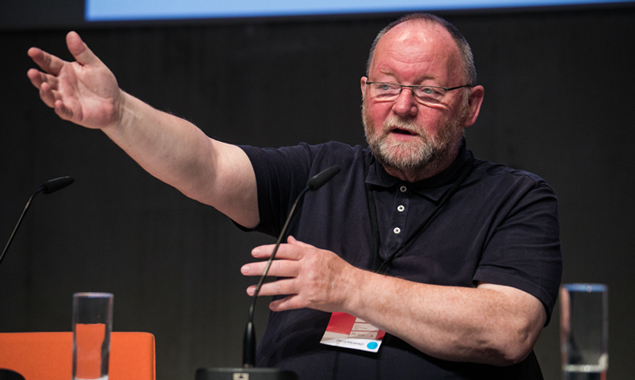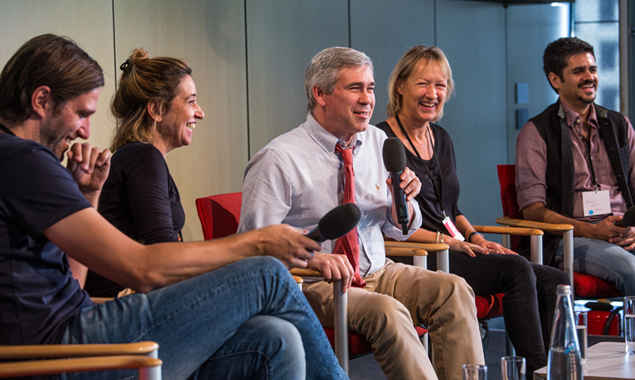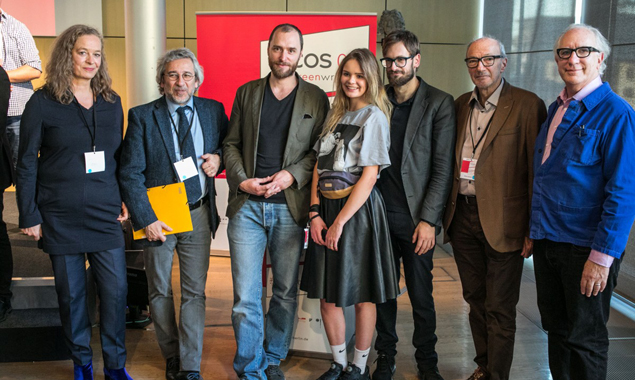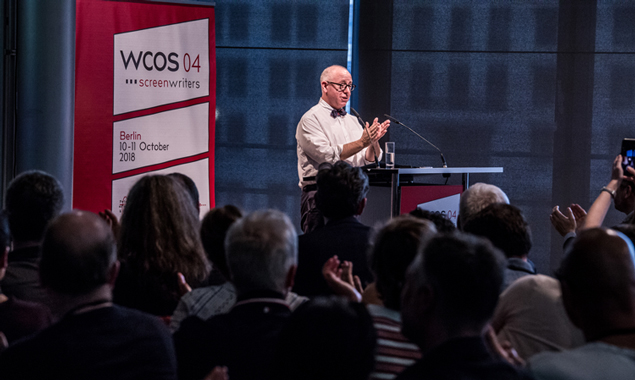Fourth World Conference of Screenwriters – Berlin 2018
“We are now all aware, more than ever before, that as screenwriters we have a huge responsibility in creating reality. It is the stories we choose to tell but also how we tell them. And I can still not imagine a better way to change the world than bringing a bunch of writers across the useless national borders and into one place, energizing them with a potent, common experience”, said Christina Kallas, former FSE President, who initiated the World Conference of Screenwriters series.
That common and inspiring experience was lived by more than 300 participants from all over the world, writers, guilds’ executives, lawyers, gathered into one place during two days in Berlin.
The fourth edition of the World Conference of Screenwriters, hosted by VDD (the Writers Guild of Germany) on 10 and 11 October 2018 in the Akademie der Künste was organised in cooperation with the Federation of Screenwriters in Europe (FSE) and the International Association of Writers’ Guilds (IAWG) and with the support of the Filmförderantstalt (FFA), the Foreign Office, the Akademie der Künste, VG Wort, the Governing Mayor of Berlin and ALCS.
In her energizing opening speech, German screenwriter Carolin Otto, vice-president of FSE, introduced the theme of the conference : Power and Freedom. Panel discussions, lectures and projections will be political!
Power
The world conference of screenwriters is organised by guilds for guilds. A truly international audience debated on the role of showrunners and the experience of writers’ rooms, on the creative opportunities generated by new market players such as Netflix and the international success of local productions. Carolin Otto stressed the role of guilds in this global environment : “Not only do we want the power to secure our vision [as writers], but we want to get paid for our work and the use of our rights. We want to make a living. The word showbusiness includes business. To get this we have to ban together. We have to build guilds”.
Freedom
The second day explored the growing threat on authors’ freedom, who feel the influence of populism and autocrat regimes on their creative work and on the independence of broadcasting and film funding, as Carolin Otto stated in her speech: “The cut down of the freedom of expression has reached the industry in the European Union, and thus our working lives […] We are writers. We invent the fictional narrative of societies. Our work is a powerful tool we have to use – even more in these times. We are responsible. It’s only together that we can move things”. This applies to gender equality, to cultural diversity, to the role of subversive scripts to change mentalities…
Writing through Oppression
The last panel was a vibrant and inspiring exchange of views and concerns about freedom of expression and speech around the world. Turkish journalist Can Dündar, former editor-in-chief of Cumhuriyet, living in exile in Germany, made a moving speech, followed by the testimony of Peter Verzilov and Veronika Nikulshina, members of the activist group Pussy Riot. Maciej Karpinski, one of the most respected screenwriters in Poland, reported on the creeping changes in the Polish film market. Jacob Groll, screenwriter from Austria, drew a picture of the situation in his country, where public service broadcasting has come under enormous pressure. Howard A. Rodman lectured on the inglorious role of the Writers Guilds of America at the time of blacklisting in the MacCarthy era.
And yet, as renowned Hollywood author and producer James Schamus said in his brilliant keynote closing the conference : “As storytellers, we help produce what seems today a vast sea of almost limitless content; our audiences simultaneously feel the virtual presence of this infinite galaxy of stories, while at the same time they must turn away from it […] After all, if we want to empower the powerless, perhaps we also need to question our belief in the “power of storytelling,” and how that belief is actually mobilized in a real word increasingly conditioned by dataveillance and algorithmic consumer management”.
With the participation of Gloria Calderón Kellett, Dennis Heaton, Steven Moffat, Elena Soarez, Camilla Ahlgren, Jeremy Pikser, David A. Goodman, James Schamus and many others… Have a look at the full list of speakers and the detailed programme of the conference.
